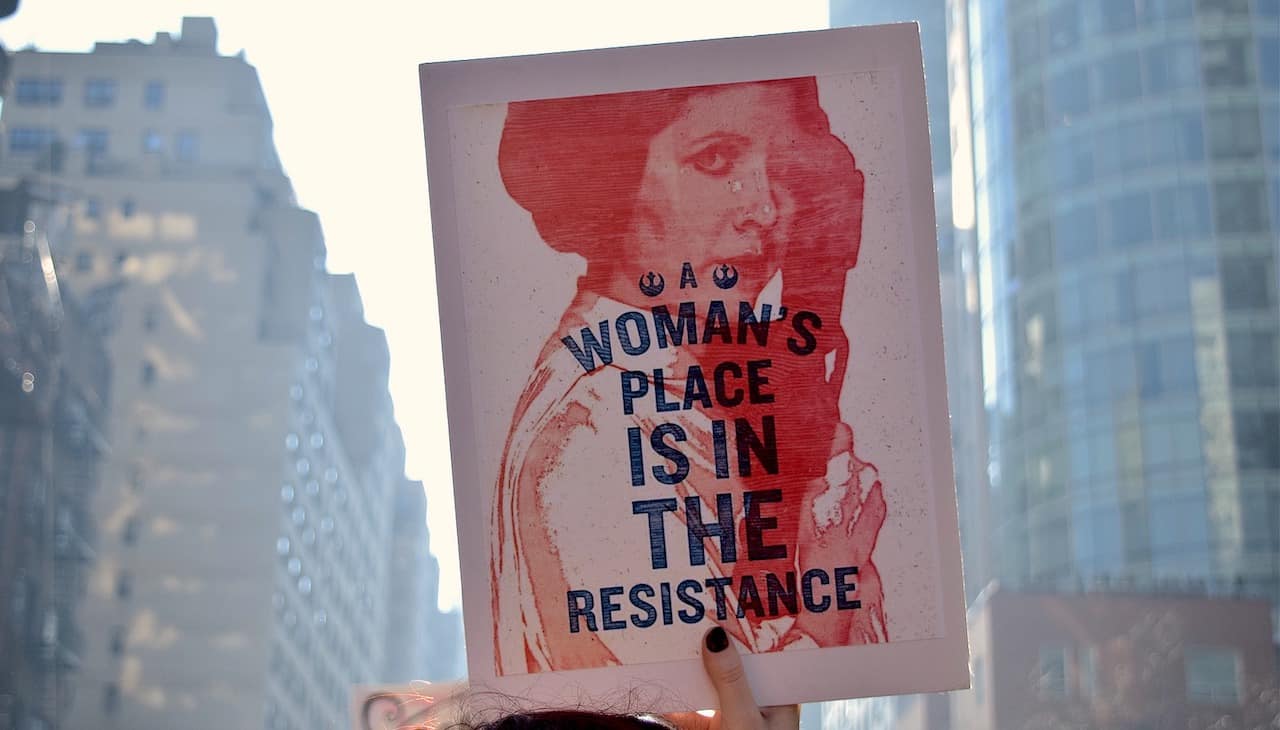
The first part of this blog post series has mainly focused on the inequalities and oppressions women have to face. You can read part one here. This second part should now focus more on movements which were supported and promoted by women in Latin America.
Within the manifestations presented throughout Latin America in recent years, the participation of women has become a central part of the speeches of recognition and reconciliation, carrying a great message throughout the territory and the world. Two elements stand out from this message, one of them is the clear rejection of violence suffered by women before the distracted eyes of modern institutions; Another is that the participating Latin American women and environmental guardians still carry with them: the development of political rights and environmental awareness. They remind us of the struggle, still unfinished, of women and past generations. Although, it is not the first time that women have been part of social mobilizations, since there are antecedents and records of women even in battlefields. This speech aims to go beyond a simple idea of equality, raising a shout of recognition to all the work they have done throughout history, and claiming to want to give greater scope to the advances that have been made in the matter of rights.
Language Equals Actions
Talking about the success of one specific movement is a bit unfair to the thousands of human rights defenders around the world; rather, we must talk about the conquests of social, environmental and economic demands. For these reasons, women have taken another step-in processes of recognition of their rights and in the reconciliation that allows us to approach this important participation throughout history. Women today seek a new language. A language which not only understands them as women from isolated territories but has allowed a movement of transformation, a movement that increasingly touches the male population and invites them to change, and which is based on a unique message:
Language = ideas (narratives) + images
Language = actions
“Sometimes the oppressed does not know what he is, and he thanks his oppressor” Pablo Freire
1. Informative Narratives
The need to generate journalistic agendas that foster critical public opinion – which differ significantly from traditional media and extremist groups generating hate speech – causes the feminist movement to team up. Groups of women journalists who are working on getting political discussions going on topics like the need of narratives according different sectors, the need to generate a call to action arising from the production of content without symbolic violence, the need for the reduction of inequality gaps through access to information. The above is essential to generate a plural democratic culture where the community has the necessary tools for the configuration of a critical public opinion and is not manipulated by hegemonic sectors.
“Every cinema that is not liberating is an oppressive cinema” 3th Cinema
2. Image
The construction of a cinema made by women is a milestone in a world dominated by capital, but at the same time it is the democratization of an art that has been a privilege for white man. The information society gives access to technology, provides new tools that we can use to rethink the image of how historically violated groups are counted. A clear example is the sexualization of women and feminized bodies in the media or of women as an object of pleasure for male vision in the cinema. A cinema made by women, female workers, environmentalists and human rights defenders is essential to build memory from the image, from within, instead of being told from an external perspective. The creation of a feminist, environmentalist and anti-capitalist cinema allows us to count, interpellate and be the unofficial memory of the people.
As a feminist I contribute to the movement from these two axes – the informative narrative and the image- firmly believing that the renewal of ideas through journalism and the cinema will cause social, economic and environmental struggles to have cross-border and sustained repercussions over time with the transfiguration of the language that generates images and actions.
An article by Astrid Torres, YGC 2020
___
The views and opinions expressed in this article are those of the authors and do not necessarily reflect the views of the Global Solutions Initiative.
___

Astrid, Young Global Changer of 2020, holds a degree in Social Communication, filmmaker and social activist. Co-founder of the Ibero-American Youth Network and was a spokeswoman for the delivery of the Youth Pact at the XXV Ibero-American Summit. She coordinates the journalistic project Efecto Latam and is the author of cinematographic works with social discourses. Her researches explores on informational capitalism, memory, visuals on climate change and symbolic violence.
